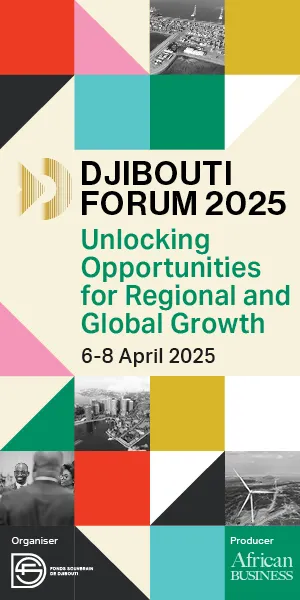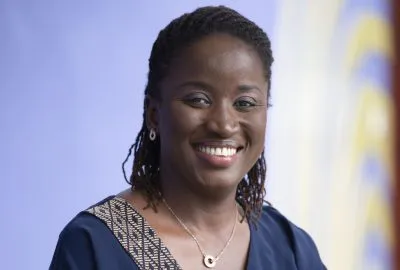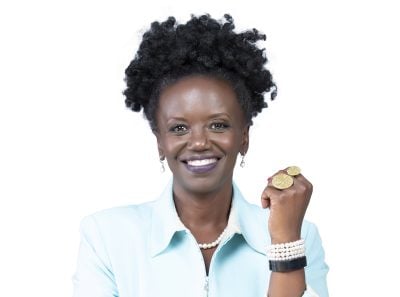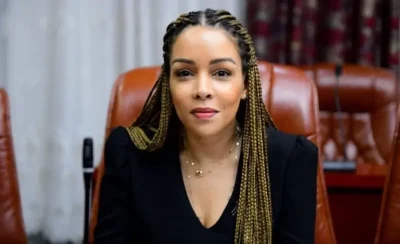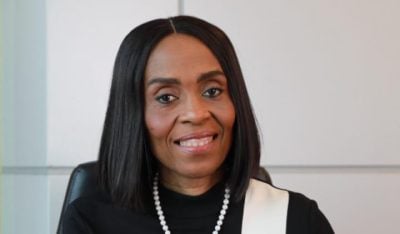On Saturday, 30 year-old Gambian waitress Khady Jetou will hail a shared taxi to a polling station before her shift at a busy sports bar in Senegambia, Gambia’s main tourist strip. She will cast her vote in the country’s presidential election by tossing a marble down the pipe of a drum, helping to seal the fate of her country’s future.
Gambia’s half-a-century old voting system was introduced after independence from the United Kingdom in 1965 in a bid to aid illiterate voters.
Saturday will mark Jetou’s first time voting in what is shaping up to be a close two-man race. The leader of the largest opposition United Democratic Party (UDP), 73 year-old Ousainou Darboe, hopes to oust President Adama Barrow from the National People’s Party (NPP).
Darboe has amassed burgeoning support among voters who are demanding a fresh approach to kickstart Gambia’s flatlining economy. Yet critics accuse him of stoking tribalism, while others say his platform is light on policy.
“I’m the only one out of my six siblings to have a job, so what future do we have as things stand?” says Jetou, who is torn between voting for Darboe, or one of the other six candidates standing for election.
Pandemic overshadows new dawn
The tiny West African tourist hub is battling a youth unemployment crisis as Covid guts its critical tourism sector. Many continue to plot their route via ‘the back way’ to Europe, despite nearly everyone knowing someone who has died in a leaky boat crossing the Mediterranean.
Tourism supports 42,000 direct jobs and 40,000 jobs indirectly in Gambia in the country of 2.4 million people, and accounts for over 20% of GDP, according to the UNDP.
This is a sharp decline from 2017 when jobs in the sector stood at 139,000 – almost 19% of total employment.
Covid wiped out the last two tourism seasons, and volatile commodity prices and supply chain contractions have hit Gambia’s agricultural sector and exports, which account for approximately one quarter of GDP and employ 75% of the labour force.
Despite the pandemic ravaging economies worldwide, Gambians were “expecting to hit the reset button and have a sincere and genuine economic and democratic transition,” says Nyang Njie, an economic analyst.
President Barrow, a relative outsider when he came to power in 2017 – and a former property developer following a stint as a security guard in London – became leader of his former UDP-led coalition after Darboe was imprisoned by Yayha Jammeh in 2016 for protesting the death of an opposition activist in custody.
Jammeh fled the country five years ago after refusing to concede defeat after 22 years of dictatorial rule, marred by allegations of human rights abuses. Under pressure from Ecowas, Jammeh was exiled to Equatorial Guinea where he remains, and Barrow promised to stay in power for only three years as a transitional president.
In 2019, he broke ranks by registering a new party, the NPP, in pursuit of a second term in office. This brought thousands of protestors onto the streets of Serekunda, Gambia’s largest city, and created a wedge between Barrow and former supporters who accuse him of acquiring a taste for power.
The last five years of Barrow’s presidency has brought development. He inaugurated a new bridge over the river Gambia to boost trade with Senegal, and his eye for infrastructure projects has stoked interest from energy investors seeking exploration opportunities, following large scale oil and gas discoveries in Senegal and Mauritania.
The Gambian energy sector is in the early stages of development, but is brimming with potential. The financial sector has attracted a growing number of subsidiaries of regional banks, many of which are profitable.

As the economy seeks to wean itself off faltering agriculture and tourism revenues, Barrow’s government has continued to rely on foreign loans for development, with many families making ends meet from private remittances sent from Gambians living abroad.
Gambians sent home $657.2m from January to October this year, three times the figure the country earned from tourism in 2019, when the global travel group Thomas Cook went bust.
Is change coming?
Ousainou Darboe is running under the #changeiscoming platform that focuses on youth employment, investment in education, health and energy.
A November opinion poll showed 22% of those surveyed intended to vote for Darboe, and 41% for Barrow, although 23% remained undecided.
Nyang Njie says Barrow continues to lose votes after his NPP formed a coalition with Jammeh’s old APRC party, and the UDP is likely to have closed ground in recent weeks.
Barrow’s split with his old party incensed many voters of the Mandinka ethnic group – the largest in Gambia – who feel they were marginalised during Jammeh’s regime, and have rallied around Darboe.
Barrow’s opponents say he represents a continuation of the status quo, “meaning Jammeh 2.0,” says Njie, after Barrow failed to implement security sector and constitutional reform or presidential term limits. Perpetrators of violence and looting during Jammeh’s regime are still yet to be fully prosecuted.
“Our constitution grants people the right of assembly but today you can’t have a political meeting without the discretion of the inspector general of police to issue a permit. So these are the things Gambians have been trying to get rid of and to get stronger institutions and weaker men and women,” says Njie.
As Thursday’s final day of campaigning drew to a close, Serekunda’s streets were lit up with bright yellow t-shirts from Darboe’s supporters who blew vuvuzelas and rode along on trucks, with the sounds of Darboe’s speeches and Afrobeat music blaring out from sound systems rigged to the back of the pickups.
UDP voters are sure of victory and say Darboe will seize the opportunity to develop the country after three previous election defeats.
Barrow’s supporters hope the foundations of economic growth laid over the last five years, the broad coalition that he’s built among the electorate, and his measured and calm personal character, will be enough to secure another five year term.
“The perception of Barrow’s idea of self-perpetuation may have made him blind however, and it’s possible that Gambians could punish him for such an action,” said Njie.
Want to continue reading? Subscribe today.
You've read all your free articles for this month! Subscribe now to enjoy full access to our content.
Digital Monthly
£8.00 / month
Receive full unlimited access to our articles, opinions, podcasts and more.
Digital Yearly
£70.00 / year
Our best value offer - save £26 and gain access to all of our digital content for an entire year!
 Sign in with Google
Sign in with Google 
